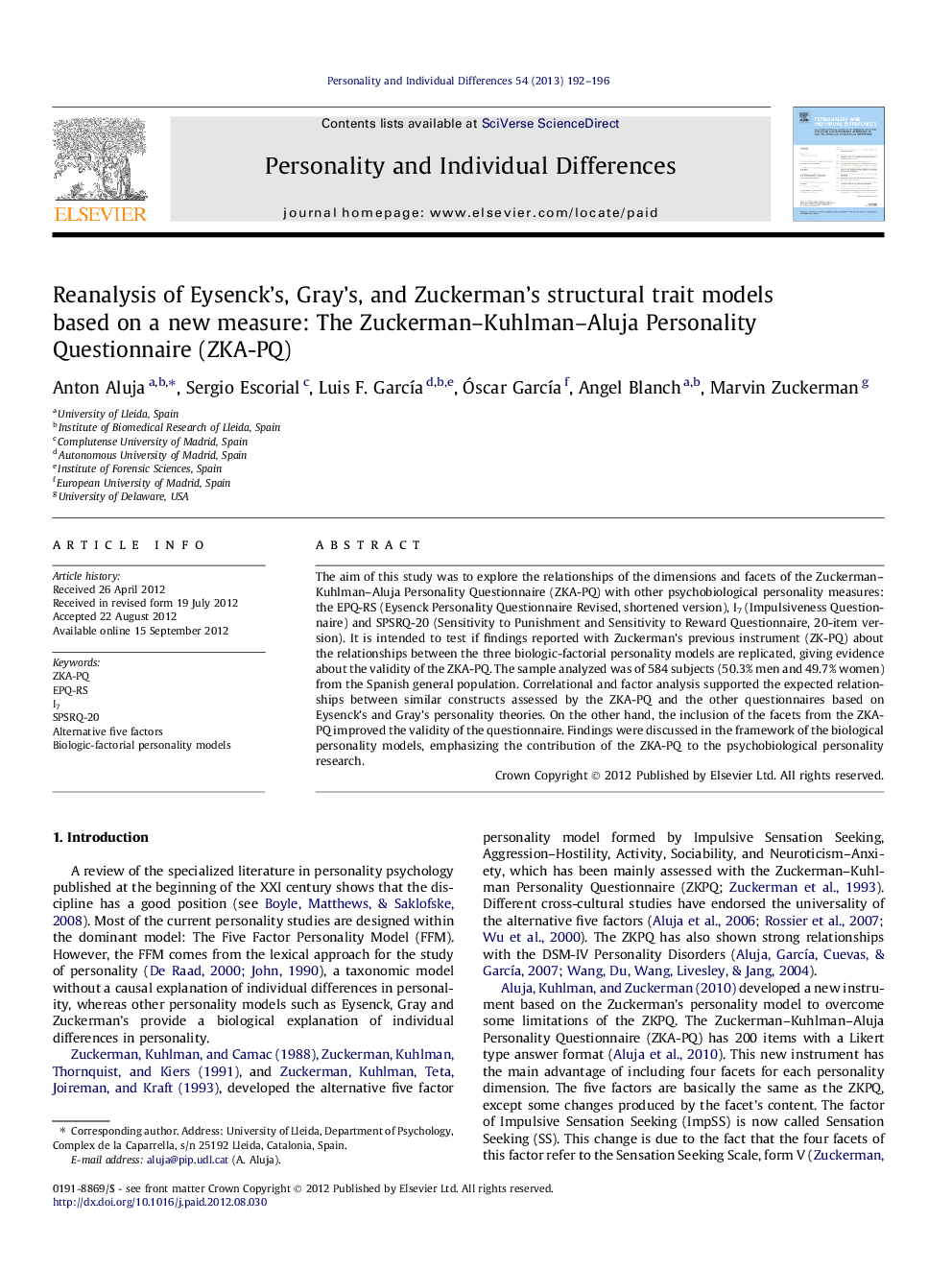| Article ID | Journal | Published Year | Pages | File Type |
|---|---|---|---|---|
| 891343 | Personality and Individual Differences | 2013 | 5 Pages |
The aim of this study was to explore the relationships of the dimensions and facets of the Zuckerman–Kuhlman–Aluja Personality Questionnaire (ZKA-PQ) with other psychobiological personality measures: the EPQ-RS (Eysenck Personality Questionnaire Revised, shortened version), I7 (Impulsiveness Questionnaire) and SPSRQ-20 (Sensitivity to Punishment and Sensitivity to Reward Questionnaire, 20-item version). It is intended to test if findings reported with Zuckerman’s previous instrument (ZK-PQ) about the relationships between the three biologic-factorial personality models are replicated, giving evidence about the validity of the ZKA-PQ. The sample analyzed was of 584 subjects (50.3% men and 49.7% women) from the Spanish general population. Correlational and factor analysis supported the expected relationships between similar constructs assessed by the ZKA-PQ and the other questionnaires based on Eysenck’s and Gray’s personality theories. On the other hand, the inclusion of the facets from the ZKA-PQ improved the validity of the questionnaire. Findings were discussed in the framework of the biological personality models, emphasizing the contribution of the ZKA-PQ to the psychobiological personality research.
► Results showed a good convergent and discriminant validity and reliability of the ZKA-PQ. ► The ZKA-PQ assessed similar constructs of Eysenck’s and Gray’s personality theories. ► The inclusion of the facets from the ZKA-PQ improved the validity of the questionnaire. ► Findings we discussed in the framework of the biological personality models.
